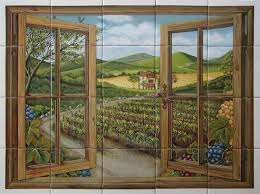Source(Google.com.pk)
Murials Biography
Murial Spark
From Wikipedia, the free encyclopedia
Muriel Spark
Spark in 1960
Born Muriel Sarah Camberg
1 February 1918
Edinburgh, Scotland
Died 13 April 2006 (aged 88)
Florence, Tuscany, Italy
Occupation novelist, short story writer, poet, essayist
Notable work(s) The Prime of Miss Jean Brodie
The Mandelbaum Gate
The Driver's Seat
Memento Mori
Dame Muriel Spark, DBE (1 February 1918 – 13 April 2006)[1] was an award-winning Scottish novelist. In 2008 The Times newspaper named Spark in its list of "the 50 greatest British writers since 1945", at #8.[2]
Contents [hide]
1 Early life
2 Writing career
3 Relationship with her son
4 Bibliography
4.1 Novels
4.2 Other works
5 References
6 External links
[edit]Early life
She was born Muriel Sarah Camberg in Edinburgh, the daughter of Sarah Elizabeth Maud (née Uezzell) and Bernard Camberg, an engineer.[3] Her father was Jewish and her mother had been raised a Presbyterian, as was Spark.[4][5] She was educated at James Gillespie's High School for Girls (1923 – 1935).[6] The family lived in the Bruntsfield area of Edinburgh. In 1934–35 she took a course in "Commercial correspondence and précis writing" at Heriot-Watt College. She taught English for a brief time and then worked as a secretary in a department store.[7]
On 3 September 1937 she married Sidney Oswald Spark, and soon followed him to Rhodesia (now Zimbabwe). Their son Robin was born in July 1938. Within months she discovered that her husband was manic depressive and prone to violent outbursts. In 1940 Muriel left Sidney and Robin. She returned to the United Kingdom in early 1944, taking residence at the Helena Club in London;[8] years later the club would be her inspiration for the fictional May of Teck Club in The Girls of Slender Means.[8] She worked in Intelligence for the remainder of World War II. She provided money at regular intervals to support her son as he toiled unsuccessfully over the years. Spark maintained it was her intention for her family to set up home in England, but Robin returned to Britain with his father later to be brought up by his maternal grandparents in Scotland.[9][10][11][12]
[edit]Writing career
Spark began writing seriously after the war, under her married name, beginning with poetry and literary criticism. In 1947 she became editor of the Poetry Review. In 1954 she decided to join the Roman Catholic Church, which she considered crucial in her development toward becoming a novelist. Penelope Fitzgerald, a fellow novelist and contemporary of Spark, wrote that Spark "had pointed out that it wasn't until she became a Roman Catholic... that she was able to see human existence as a whole, as a novelist needs to do."[13] In an interview with John Tusa on BBC Radio 4, she said of her conversion and its effect on her writing: "I was just a little worried, tentative. Would it be right, would it not be right? Can I write a novel about that — would it be foolish, wouldn't it be? And somehow with my religion — whether one has anything to do with the other, I don't know — but it does seem so, that I just gained confidence…" Graham Greene and Evelyn Waugh supported her in her decision.
Between 1955 and 1965 she lived in a bedsit at 13 Baldwin Crescent, Camberwell, south-east London.[14] Her first novel, The Comforters, was published in 1957. It featured several references to Catholicism and conversion to Catholicism, although its main theme revolved around a young woman who becomes aware that she is a character in a novel.










Murials Biography
Murial Spark
From Wikipedia, the free encyclopedia
Muriel Spark
Spark in 1960
Born Muriel Sarah Camberg
1 February 1918
Edinburgh, Scotland
Died 13 April 2006 (aged 88)
Florence, Tuscany, Italy
Occupation novelist, short story writer, poet, essayist
Notable work(s) The Prime of Miss Jean Brodie
The Mandelbaum Gate
The Driver's Seat
Memento Mori
Dame Muriel Spark, DBE (1 February 1918 – 13 April 2006)[1] was an award-winning Scottish novelist. In 2008 The Times newspaper named Spark in its list of "the 50 greatest British writers since 1945", at #8.[2]
Contents [hide]
1 Early life
2 Writing career
3 Relationship with her son
4 Bibliography
4.1 Novels
4.2 Other works
5 References
6 External links
[edit]Early life
She was born Muriel Sarah Camberg in Edinburgh, the daughter of Sarah Elizabeth Maud (née Uezzell) and Bernard Camberg, an engineer.[3] Her father was Jewish and her mother had been raised a Presbyterian, as was Spark.[4][5] She was educated at James Gillespie's High School for Girls (1923 – 1935).[6] The family lived in the Bruntsfield area of Edinburgh. In 1934–35 she took a course in "Commercial correspondence and précis writing" at Heriot-Watt College. She taught English for a brief time and then worked as a secretary in a department store.[7]
On 3 September 1937 she married Sidney Oswald Spark, and soon followed him to Rhodesia (now Zimbabwe). Their son Robin was born in July 1938. Within months she discovered that her husband was manic depressive and prone to violent outbursts. In 1940 Muriel left Sidney and Robin. She returned to the United Kingdom in early 1944, taking residence at the Helena Club in London;[8] years later the club would be her inspiration for the fictional May of Teck Club in The Girls of Slender Means.[8] She worked in Intelligence for the remainder of World War II. She provided money at regular intervals to support her son as he toiled unsuccessfully over the years. Spark maintained it was her intention for her family to set up home in England, but Robin returned to Britain with his father later to be brought up by his maternal grandparents in Scotland.[9][10][11][12]
[edit]Writing career
Spark began writing seriously after the war, under her married name, beginning with poetry and literary criticism. In 1947 she became editor of the Poetry Review. In 1954 she decided to join the Roman Catholic Church, which she considered crucial in her development toward becoming a novelist. Penelope Fitzgerald, a fellow novelist and contemporary of Spark, wrote that Spark "had pointed out that it wasn't until she became a Roman Catholic... that she was able to see human existence as a whole, as a novelist needs to do."[13] In an interview with John Tusa on BBC Radio 4, she said of her conversion and its effect on her writing: "I was just a little worried, tentative. Would it be right, would it not be right? Can I write a novel about that — would it be foolish, wouldn't it be? And somehow with my religion — whether one has anything to do with the other, I don't know — but it does seem so, that I just gained confidence…" Graham Greene and Evelyn Waugh supported her in her decision.
Between 1955 and 1965 she lived in a bedsit at 13 Baldwin Crescent, Camberwell, south-east London.[14] Her first novel, The Comforters, was published in 1957. It featured several references to Catholicism and conversion to Catholicism, although its main theme revolved around a young woman who becomes aware that she is a character in a novel.
Murials
Murials
Murials
Murials
Murials
Murials
Murials
Murials
Murials
Murials
Murials
No comments:
Post a Comment